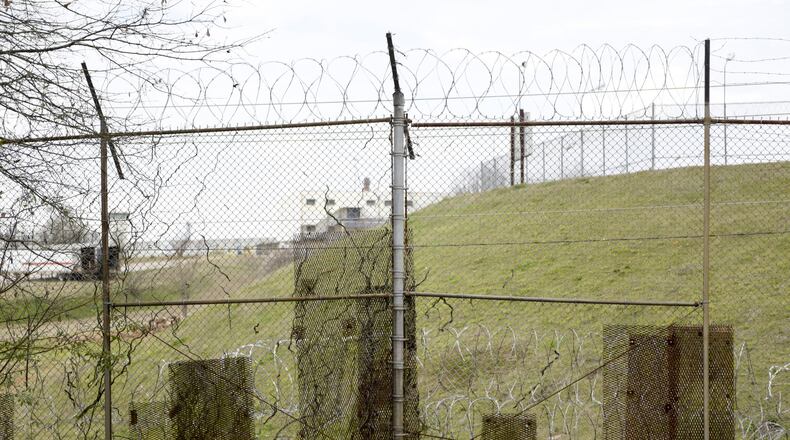The U.S. Penitentiary in Atlanta has placed restrictions on inmate movement at its low-security prison camp in an effort to clamp down on prisoners leaving the grounds to get drugs, alcohol, cellphones and other banned items that they then bring to the prison, officials confirmed Tuesday.
A memo circulated last week, and obtained by The Atlanta Journal-Constitution, said “all camp inmates will be placed on bunk restriction.” Inmates are not allowed to leave their assigned bunk areas except for work details or to shower or use the restrooms.
Prison camp inmates sleep in an open area with bed areas sectioned off by shoulder-high cinder-block walls; there are no doors on the cubicles.
“All television rooms and recreation activities are canceled until further notice,” said the memo written by Capt. D. Silva.
The memo said the timing of the daily inmate counts, which are done to ensure no one has escaped, would be “irregular so inmates are unable to track correctional officers’ patterns.”
For years, according to inmates, there have been prisoners at the federal camp in Atlanta sneaking out and sneaking back in with contraband. The Bureau of Prisons, citing "security reasons," declined to say what prompted the new restrictions at this time.
Until now, the low-security inmates have had free rein of the prison camp. There are usually only one or two officers at a time overseeing 350 inmates spread out over eight low-slung housing units.
The staffing and the prison’s proximity to apartment complexes and businesses have made it easy for inmates to slip away to pick up bags of banned items, as well as go to nearby restaurants and motels.
Yet not one escaping inmate was caught until early February of this year.
That’s when Justin Stinson was captured after he climbed through a hole cut in a fence to fetch a bag containing a cellphone, two bottles of Jose Cuervo tequila, two cartons of Newport cigarettes, four boxes of Black and Mild cigars, plus scissors and food items. Stinson was headed back to the prison camp when he was arrested.
After Stinson, two more inmates were captured — one as he retrieved banned items in a bag and the other in a car with his fiancée, who also ran a shuttle service of prisoners wanting rides to a nearby motel to meet women.
But the problem was more widespread than what happened with those three inmates, who have all pleaded guilty to attempted escape.
The AJC has reported that inmates made almost nightly trips through holes in the fence. They would return with takeout, or even food to be cooked on grills they had hidden at the prison. They would meet people at nearby motels and restaurants. Many times they would retrieve drugs, alcohol and cellphones to take back for their own use or to sell to other prisoners.
The owner of a cemetery that abuts the rear of the prison property said she often saw women parked, waiting near the fence-line for inmates who temporarily escaped. She would call the prison when she saw the rendezvous.
And residents at nearby houses, apartment complexes and businesses called the prison many times over the years to report inmates escaping, according to records.
In May, the warden suddenly retired, but her replacement has not yet taken over, according to the Bureau of Prisons.
About the Author
The Latest
Featured

